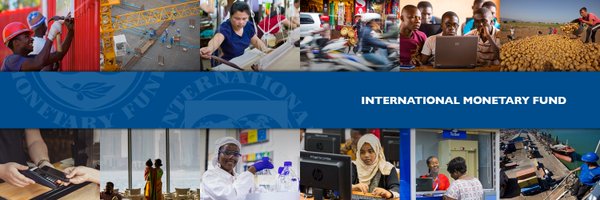 (AGENPARL) - Roma, 15 Luglio 2022
(AGENPARL) - Roma, 15 Luglio 2022(AGENPARL) – ven 15 luglio 2022 The latest IMF analysis of global economics, finance, development and policy issues shaping the world. []
[IMF Weekend Read]
Dear Colleague,
In today’s edition, we spotlight the darkening global outlook as G20 officials gather in Bali, Daniel Yergin on the new energy map, the inflation challenge in the US, global economic leadership, Sub-Saharan Africa’s development prospects, Benin’s new IMF program, inflation expectations, public investment management, and much more.
Global Economy
Why Countries Must Cooperate on Carbon Prices
(PHOTO: NATE BITTINGER/GETTY-IMAGES PRO)
The outlook for the world economy has darkened and risks of recession are rising, IMF Managing Director Kristalina Georgieva warned this week as G20 ministers and central bank governors gathered on the Indonesian island of Bali.
“The human tragedy of the war in Ukraine has worsened. So, too, has its economic impact especially through commodity price shocks that are slowing growth and exacerbating a cost-of-living crisis that affects hundreds of millions of people—and especially poor people who cannot afford to feed their families,” Georgieva wrote.
“Inflation is higher than expected and has broadened beyond food and energy prices. This has prompted major central banks to announce further monetary tightening—which is necessary but will weigh on the recovery. Continuing pandemic-related disruptions—especially in China—and renewed bottlenecks in global supply chains have hampered economic activity.”
The IMF is likely to revise down its projections for global growth for both 2022 and 2023 in the World Economic Outlook Update later this month, Georgieva said.
“It is going to be a tough 2022—and possibly an even tougher 2023, with increased risk of recession.”
Energy
(IMAGE: IMF)
The energy crises of the early 1970s, the 1980s, and the early 2000s all had their challenges, but none were so intertwined with other emergencies like a war in Europe, climate change, and a global pandemic.
(CREDIT: ISTOCKPHOTO/THANUMPORN THONGKONGKAEW)
In discussing the energy transition, Wagner explores energy affordability, risks around energy dependence, and the costs and benefits of different ways to approach the energy shift.
“A true net-zero transition implies both the rapid deployment of new low-carbon technologies and more significant systemic changes,” Wagner concludes.
Our June issue focuses on the economic dimensions of the current geopolitical situation, including the war in Ukraine, refugees, and food prices.
Authors include Tharman Shanmugaratnum, Pierre-Olivier Gourinchas, Eswar Prasad, Raj Chetty, Barry Eichengreen, Patricia Clavin, and many others, who examine the rare confluence of geopolitical, economic, and technological forces now confronting the world may reverberate for generations.
Want to get a print copy delivered to your home or office?
—————————————————————
(CREDIT: IMF)
(CREDIT: ISTOCK/ NARONGRIT DOUNGMANEE)
(PHOTO: IMF)
(PHOTO: IMF)
WEEKLY ROUND-UP
—————————————————————
MARK YOUR CALENDAR
—————————————————————
[profile]
Nick Owen
Editor
IMF Weekend Read
Thank you again very much for your interest in the Weekend Read! Be sure to let us know what issues and trends we should have on our radar.
Connect on Social

